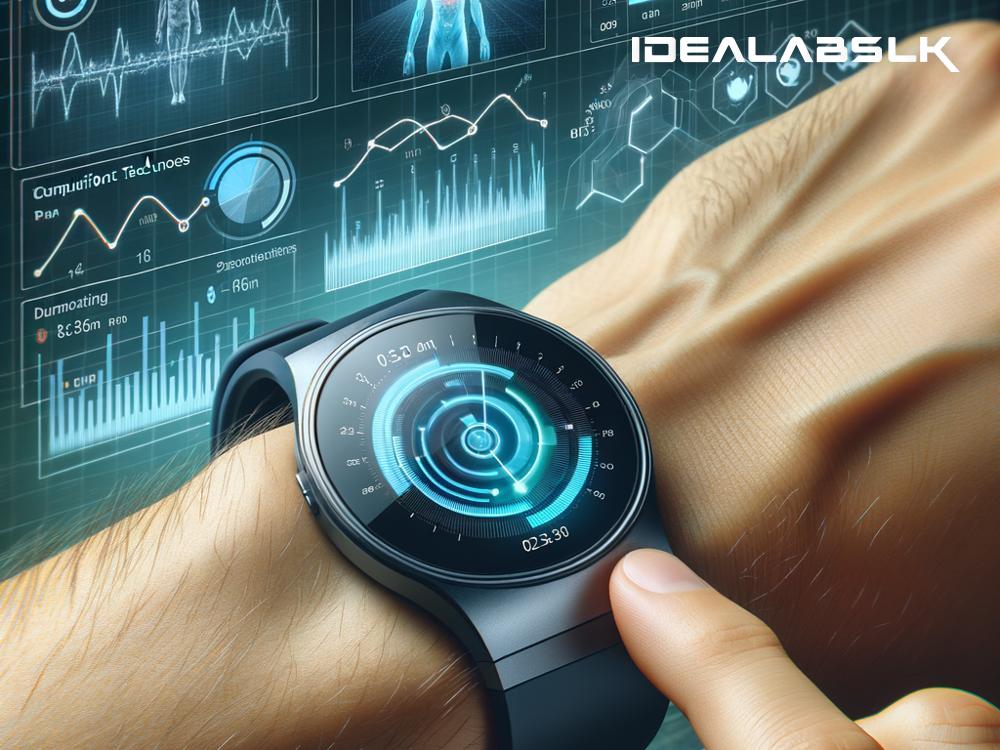Title: How AI is Revolutionizing Sleep Tracking in Health Wearables
In the realm of health and wellness, getting a good night's sleep is just as crucial as regular exercise or eating a balanced diet. It's fascinating how technology, particularly artificial intelligence (AI), has stepped in to help us understand and improve our sleep patterns. Today, let's dive into how AI is transforming the way health wearables predict sleep patterns, making it easier for us to achieve that elusive perfect night's sleep.
Understanding Sleep and Its Importance
Before we get into the techy details, it's essential to grasp why sleep matters so much. Sleep is our body's way of recharging. It affects almost every type of tissue and system in the body – from the brain to the heart, and even our immune system. Not getting enough sleep can affect your mood, memory, and even increase the risk of certain diseases.
But how do we know if we're getting enough quality sleep? That's where health wearables and AI come into play.
The Role of Health Wearables in Tracking Sleep
Health wearables, like fitness trackers and smartwatches, have become our 24/7 companions, monitoring everything from our steps to our heart rates. In recent years, these gadgets have also begun to track our sleep patterns. They do this by using sensors that monitor our movements and heart rate while we sleep. The idea is simple: by analyzing this data, the wearables can tell when we're awake, in light sleep, deep sleep, or even in the REM (Rapid Eye Movement) stage of our sleep cycle.
Enter AI: The Game Changer for Sleep Tracking
While wearables can collect tons of data, making sense of it all is where AI comes in. AI, with its ability to learn and identify patterns, sifts through the data collected by the wearable to give us a clearer picture of our sleep patterns. Here's how AI is making sleep tracking smarter:
-
Personalized Sleep Analysis: AI algorithms can learn from your sleep data over time, offering insights that are tailored just for you. It can identify patterns or irregularities in your sleep cycle and even give suggestions for improvement.
-
Stages of Sleep Detection: Identifying the stages of sleep (light, deep, REM) accurately can be tricky. AI improves the accuracy by analyzing the heart rate variations and movements detected by the wearable, helping it to better distinguish between the different sleep stages.
-
Sleep Quality Score: Some health wearables now give a sleep quality score, an overall assessment of your sleep based on the duration, depth, and regularity. This score is mostly generated by AI, offering you a quick glance at how well you slept.
-
Predictive Insights: The real magic of AI lies in its ability to not just analyze but predict. By learning from your sleeping patterns, AI can forecast how your sleep might be affected by changes in your routine or environment, and suggest the best time for you to sleep based on your natural sleep cycle.
AI and The Future of Sleep Tracking
The potential for AI in enhancing sleep tracking is immense. In the future, we can expect even more personalized recommendations, perhaps even AI-driven interventions for sleep disorders. Imagine your wearable suggesting the best time for you to go to bed or nudging you to start winding down, all based on AI's understanding of your unique sleep needs.
Conclusion
The integration of AI into health wearables has taken sleep tracking to a whole new level. It's not just about counting hours anymore; it's about understanding the quality of sleep and how it fits into our overall health. As AI technology advances, we can only expect it to get smarter, making our journey to better sleep not just a dream, but a well-tracked and analyzed reality.
Remember, while wearables and AI can provide valuable insights, they're part of a larger picture. Good sleep hygiene, a comfortable sleep environment, and a consistent schedule are still fundamental to getting a good night's sleep. But with AI on our side, unlocking the secrets of our sleep patterns has never been easier. Here's to healthier nights ahead!

